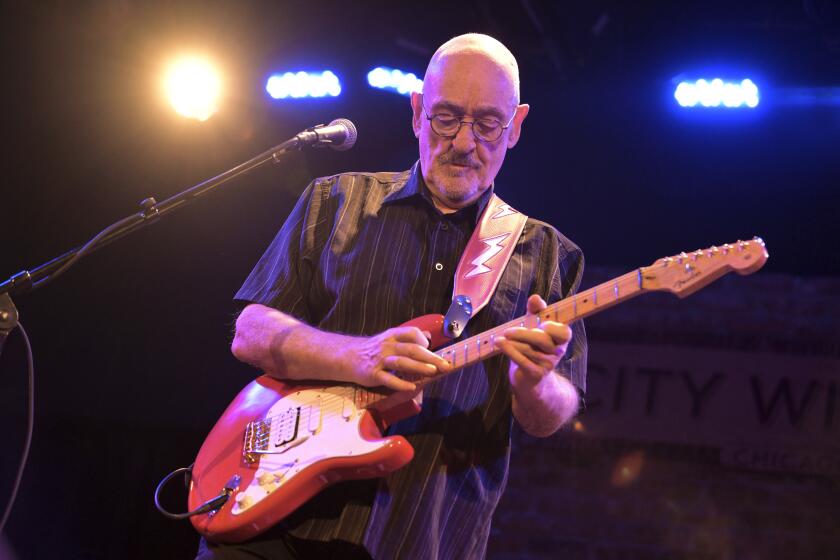Wikipedia wars erupt
ON Sept. 17, Jimmy “Jimbo” Wales, the founding father of Wikipedia and the community’s most celebrated member, created a one-sentence article that read as follows:
“Mzoli’s Meats is a butcher shop and restuarant [sic] located in Guguletu township near Cape Town, South Africa.”
Twenty-two minutes later, the article was deleted from the site. Nineteen-year-old administrator Chad Horohoe, who uses the moniker “^demon,” removed the entry, citing Wikipedia guideline CSD A7 (Criteria for Speedy Deletion: Articles: No. 7), which says that an article can be summarily deleted -- with no discussion or notice to the author -- if it contains “no assertion of importance/significance.”
Horohoe’s unilateral decision to kill the “Mzoli’s” article spawned a vehement weeklong debate in which dozens of users and administrators battled over the importance/significance of a barbecue place none of them had heard of. Also at issue was whether the initial deletion was a deliberate dig at Wales -- perhaps in a bid for attention, or if the article was in fact pointless “cruft,” which, had it been written by anyone else, would’ve been deleted without a peep, as are thousands every day.
“Once again, people are trying to give Jimbo some god-like status and put him above the rules,” wrote Horohoe.
“Delete with fire,” recommended another user. “If anyone but King James had started this arty it would have been cast into the memory hole within an hour. Doubt this? Then test it by starting an article on a local restaurant you like and see how long it remains alive.”
(I did test this by posting a three-sentence entry about a quirky pet store in my hometown. It was deleted after 27 hours -- not instantaneously, as in Wales’ case, but still pretty quickly.)
His intentions assailed, Wales deigned to enter the Mzoli’s fray, accusing his detractors of “shockingly bad faith behavior,” and suggesting that some of them should “excuse themselves from the project and find a new hobby.”
At first blush, the Mzoli’s debate looks like countless other kerfuffles in the minutia- obsessed Wikipedia community. Contentious ‘Wikipedians’ are famous for focusing NASA-like quantities of brainpower on such marginal issues as the true height of Andre the Giant (7 foot 1? 7-4? 6-10?), whether Europe is “commonly considered” a continent and if vinegar is a fundamental ingredient of mayonnaise.
To some Wiki pundits, however, the Mzoli’s debate was not just another pedantic back-and-forth -- it was a symptom of the growing pains now afflicting the 6-year-old project.
Having just passed the 2-million article mark last week, Wikipedia is not the virginal expanse it once was.
“Of course if you start from zero like Wikipedia did in 2001,” said media scholar Andrew Lih, author of an upcoming book on the history of the project, “the growth at the beginning is going to be much more rapid than it is now -- you’re filling in articles about ‘dog,’ ‘cat,’ ‘blanket,’ ‘food,’ ‘government.’ ”
But as Wikipedia’s knowledge base has expanded to cover the highest-profile people, places and things, making an original contribution becomes a lot tougher. Wales touched on this plateau effect last year when he recommended that Wikipedia community members “continue to turn our attention away from growth and toward quality.”
Users may have taken Wales’ entreaty to heart. According to Lih, much of the editorial activity has shifted from article creation and expansion to “deleting, pruning, citing and challenging.”
Perhaps the granddaddy of all the Wikipedia debates is the question of which information deserves to be included, and which doesn’t. So-called Inclusionists believe that because Wikipedia is not bound by the same physical limits as a paper encyclopedia, it shouldn’t have the same conceptual limits either. If there’s room for an article on unreleased Kylie Minogue singles -- and a group of people who might find it useful -- why not include it?
Deletionists, meanwhile, believe that because not all articles are created equal, judicious pruning increases the overall quality of Wikipedia’s information and strengthens its reputation. An encyclopedia, they say, is not just a dumping ground for facts.
Lih and other veteran Wikipedians, including Geoff Burling, a contributor since 2002 and author of the Wikipedia blog Original Research, see a generation gap among editors as partially responsible for the recent rise of Deletionism.
“I think this is more of a conflict between the Wikipedians who have been part of the project for some time,” Burling wrote in an e-mail, “versus a group that has not been part of the project as long.” Most members of the old guard, he explained, had at one point or another helped delete articles that they later realized should have been kept.
“The newer members haven’t made mistakes like this enough times to understand that caution is a virtue.”
At the heart of the include-exclude issue is the idea of notability, which a Wikipedia policy page defines as “worthy of notice.” The problem is that deciding what counts as notable -- and who gets to decide it -- is a hopelessly slippery pursuit. We can probably all agree that the Mona Lisa, the Great Pyramids and the Pacific Ocean are notable. But what about my pet shop? It’s notable to me and the people in my neighborhood, and everyone who’s bought a dog or a snake there. Isn’t that enough?
Or if you don’t like that example, how about YouTube’s Chris Crocker, of “Leave Britney Alone” fame. An article on him was posted in July and deleted within days. Then a second version was created Sept. 12. That version was also nominated for deletion, but this time, a consensus failed to emerge. Crocker just wasn’t non-notable enough anymore.
Wikirage, a new site that lists the most heavily edited recent articles, reads like a What’s What of popular culture. The site’s top article last week was “Blue Harvest,” an exhaustively detailed entry on the sixth-season premiere of “Family Guy.” Also receiving a lot of attention were “Halo 3” (No. 2), “Gimme More” (No. 5), and “Heroes” (No. 8). An article on the nation “Chad” came in third, but only because it had been featured on Wikipedia’s home page. (A Wikipedia article about “Wikirage” has been created twice, and deleted both times, said Craig Wood, the site’s creator.)
And though “Blue Harvest” raised no Deletionist hackles, articles currently on the chopping block are an entry on “Florizel,” a character from Shakespeare’s “The Winter’s Tale”; an article called “Charon in popular culture,” which lists dozens of appearances of the grim ferryman in recent books and movies; and even a long and thorough entry on “the Peninsula Outlook,” an award-winning high-school newspaper out of Gig Harbor, Wash., that a bunch of kids clearly worked on really hard.
To be fair, Wikipedia administrators do rid the site of truckloads of needless guff. People are constantly posting articles about their best friends, their quirky theories, their local pet stores, their short films -- most of which stand little chance of being read, except by accident.
But if even a small number of useful articles are being deleted in the name of keeping Wikipedia clean, isn’t that like allowing a few innocent men to hang in favor of a lower crime rate?
“Wikipedia’s community has become so rushed, so immediatist, that it is not willing to allow embryonic articles even a tiny modicum of time to incubate,” wrote an editor named Kelly Martin of the Mzoli’s situation.
Ultimately, Mzoli’s was spared. But not until a gaggle of editors worked on expanding it from an afterthought to a more substantial portrait. Though it’s still just a description of an African barbecue place, it’s difficult to see how the world would be better off without it.
Special thanks to Ben Yates of Wikipedia Blog.
david.sarno@latimes.com
More to Read
The biggest entertainment stories
Get our big stories about Hollywood, film, television, music, arts, culture and more right in your inbox as soon as they publish.
You may occasionally receive promotional content from the Los Angeles Times.










